Six rising seniors at the UNC School of Nursing were named 2021 UNC Lineberger-Sylvia Lauterborn and Warren Trent Piver Oncology Nursing Fellows.
John Belcher, BSN ’21, Lindsey Humphrey, BSN ’22, Lauren Larison, BSN ’22, Robert Streeter, BSN ’21, Jenny Warnasch, BSN ’22, and Alexa Woodard, BSN ’22, will participate this summer in the ten-week fellowship program, which provides in-depth training in inpatient and outpatient cancer care at the North Carolina Cancer Hospital.
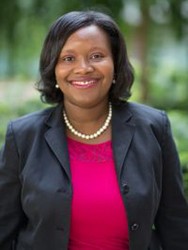
Led by UNC Lineberger’s Ashley Leak Bryant, PhD, RN-BC, OCN, FAAN, an associate professor in the UNC School of Nursing and the Anne Belcher Interprofessional Faculty Scholar in Nursing, and in close partnership with oncology nurse education specialists Susie Mason, MSN, RN, OCN and Claire Gillett, MSN, RN, OCN, the fellowship program fosters professional development in oncology nursing by having fellows work closely with oncology nurses to better understand the nurses’ role with symptom management, clinical trials and best practices in providing supportive care services.
The fellowship is funded in part by Robert “Bob” Lauterborn, a supporter of UNC Lineberger and the North Carolina Cancer Hospital, where his late wife, Sylvia, received excellent cancer nursing care, and by Laura Carlo Piver, in memory of her husband, Warren Trent Piver, PhD, in the belief that nurses bring unique knowledge, skills, perspective and caring to cancer care.
Sylvia Lauterborn was born in Crumlin, Wales. She was a student nurse at Charing Cross Hospital in London and held other roles before becoming a flight attendant for Pan American Airways. While in training for Pan Am in Queens, New York, she met Bob, who was on a training program for GE. They were married Sept. 28, 1963. The couple moved to Chapel Hill in 1986 when Bob joined the faculty at UNC. Sylvia’s love of travel took her to 83 countries during a 50-year period, first as a flight attendant, then with her husband as he taught all over the world. She died after a battle with pancreatic cancer in 2013.
Warren Piver was a chemical engineer who possessed a deep-seated scientific curiosity about a broad range of environmental issues. He was internationally recognized for his work on groundwater contamination and climate change. When he was 44, he underwent aggressive chemotherapy at UNC for non-Hodgkin lymphoma. He received an autologous bone marrow transplant at the Dana-Faber Cancer Institute, as UNC’s bone marrow transplant program had not yet started. During the ensuing 13 years in which he was cancer-free, Warren saw sons married, a daughter in college, volunteered with his church and in the community, and excelled professionally. Fifteen years after his original diagnosis, Warren succumbed to acute myelogenous leukemia. Excellent medical care, and especially knowledgeable, compassionate nursing care, were vital pillars in his life story.
The fellows shared a few of their thoughts about what motivated them to apply for the program.
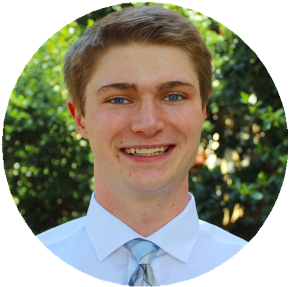 John Belcher, BSN ‘21
John Belcher, BSN ‘21
“I am interested in oncology because I have a curiosity for intriguing oncology treatments. These life-changing treatments really do matter because the people receiving them matter. My mother survived cancer, and she has shown me the value of supporting others. I use this mindset as I provide support for families at the SECU Family House. Also, I have come to the realize that supporting others is truly a blessing on earth.”
 Lindsey Humphrey, BSN ‘22
Lindsey Humphrey, BSN ‘22
“I am interested in oncology nursing because I have seen the profound impact of oncology nursing through the life of my grandfather. Seeing patient and family-centered care firsthand, I gained the utmost respect for oncology nurses, leading me to apply to nursing school. I am eager to learn more about the oncology nurse’s role from providing infusion services and radiation therapies to making known the available patient support programs and clinical trial options.”
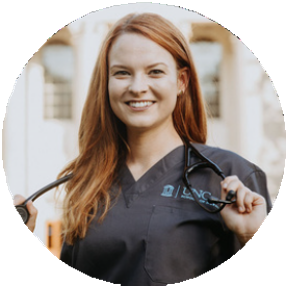 Lauren Larison, BSN ‘22
Lauren Larison, BSN ‘22
“My experiences in the pediatric and adult hematology oncology settings have provided a vantage point that allows me to empathize with patients in a way that only few nurses can. These experiences in the hospital setting have been gained through multi-lensed views — health care worker, caregiver and patient. I have pursued this fellowship opportunity to build an expansive skill-set in holistic and multidisciplinary care, practice- focused research, and innovative leadership, skills that will ultimately strengthen my ability as a nurse to provide comprehensive and compassionate care.”
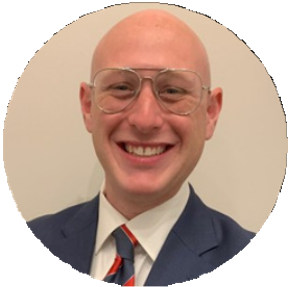 Robert Streeter BSN ‘21
Robert Streeter BSN ‘21
“My interest in oncology began when I was working as a paramedic outside of Pittsburgh, PA. I have a large interest in palliative care and compassionate patient care. Since the beginning of my paramedic career, I have had the opportunity to interact with numerous patients undergoing treatment for various cancers, with every encounter fueling an interest in oncology. Specifically, I am interested in palliative care and end-of-life care, and I wish to discover new ways to provide culturally sensitive, compassionate and evidence-based care to patients and their families during this challenging time in their lives. I am thankful and excited for the opportunity to pursue my interests with this fellowship.”
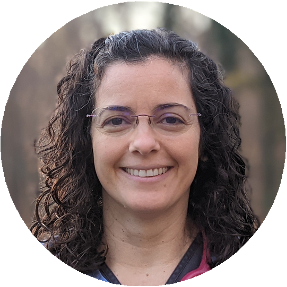 Jenny Warnasch, BSN ‘22
Jenny Warnasch, BSN ‘22
“I’m interested in many aspects of oncology nursing including palliative care, end-of-life care, surgery, a changing treatment landscape driven by research, nursing that requires highly technical skills, and opportunities for complementary medicine. I’m also drawn to an environment in which I can get to know my patients as I work with them through the duration of their care, sharing both the good times and the challenging times. I’m very excited and grateful for this opportunity to explore oncology nursing.”
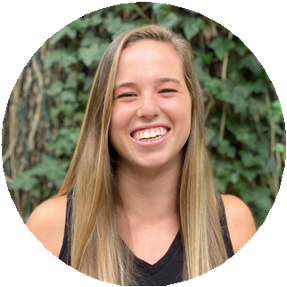 Alexa Woodard, BSN ‘22
Alexa Woodard, BSN ‘22
“By witnessing the devastating toll of cancer within my own family, I have developed a passion for improving cancer treatments via epigenetic advancements and ensuring that cancer patients and their families receive the best possible care. I am also interested in learning how to improve access to advanced cancer within rural and underserved communities.”
